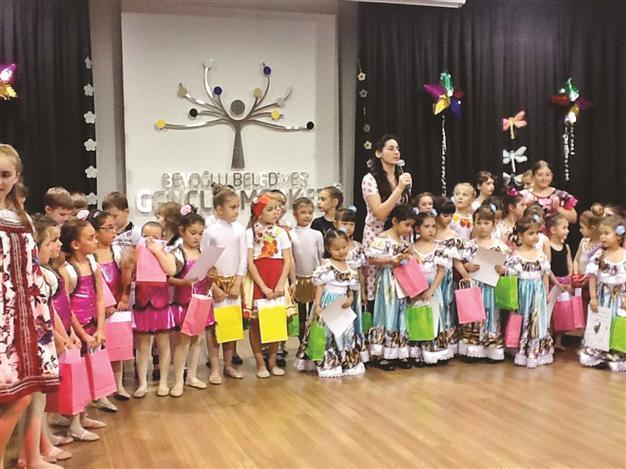Marriages help Turkish- Russian ties
ISTANBUL- Hürriyet Daily News

The children of Turkish-Russian couples will bring the two nations together, says Russian Cultural Center chair.
Marriages between Turks and Russians, which have increased a great degree over the last 20 years, have been helping boost relations between the two countries, according to a Russian cultural official.Russian Education, Culture and Cooperation Association Executive Chair Rimma Rizayeva told the Hürriyet Daily News that a new generation of children emerging from Turkish-Russian marriages would act as a cultural bridge between the two nations in the future.
Established seven years ago, the Russian Cultural Center provides legal support to Russian women in Turkey who are going through a divorce or have other kinds of problems, with the help of Russian lawyer Alona Smirnova, who graduated from a Turkish university.
When asked about the divorce rate between Turkish and Russian couples, Rizayeva said: “The first marriages made 20 years ago were more problematic since they married before getting to know each other’s cultures and thus resulted in disappointments. But now the people who have received a higher education consciously marry each other. Of course, divorces may happen, but it could happen in every relationship.”
Rizayeva also said children from these marriages needed an education comprised of both Turkish and Russian cultural aspects. “Schools [that offer such subjects] will form a bridge between the two countries.”
Tatiana Uzunay, a Russian woman who graduated from St. Petersburg University and recently married a Turkish businessman, said she was irritated by prejudices that had caused some troubles in her social life.
“The wife of my husband’s best friend does not want to see us merely because I am Russian; this is very irritating. I want to change the bad reputation of Russian women,” she said.
“I am happy to be married to a Turk,” she said. “I would like to say that neither Turks nor Russians know each other well. Russians only see Turkey as a cheap country to have a vacation, but Turkey has much more than that; I want to be a cultural envoy.”
Russians living in Turkey largely demand their own schools and churches in cities such as Istanbul, Antalya and Alanya.
The association’s deputy head, Karani Çakır, said they negotiated with authorities in Ankara and the Turkish-Russian Inter-Parliamentary Friendship Group with regard to building a school.
After the countries of the Eastern bloc collapsed at the beginning of the 1990s, women from Russia started shuttle-trading in Turkey; some of them were involved in prostitution. Thereafter, Russian women began being called “Natasha” among Turks, which came to mean “prostitute” in colloquial language. “In our hard times, our women came to Turkey and engaged in the shuttle trade, and there were also prostitutes among them. But it is very offensive to name all Russian women as ‘Natashas,’” she said.
















